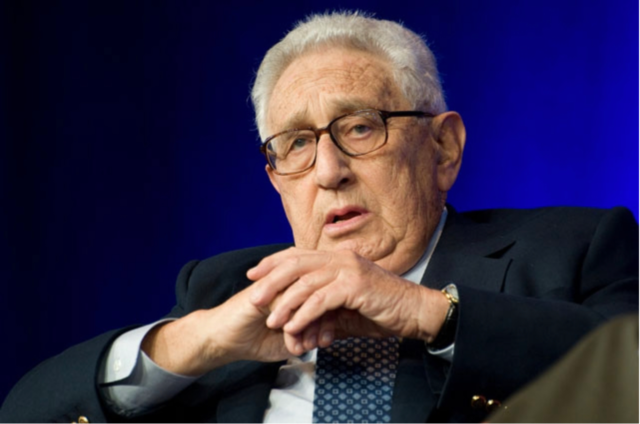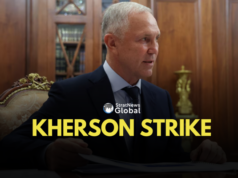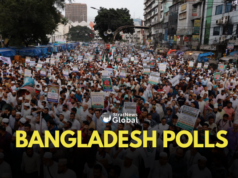NEW DELHI: “Henry Kissinger hit some neuralgic spot in the collective brain of a generation.” That was Historian Niall Ferguson, summing up perhaps the world’s best known strategic thinker of the 20th and 21st centuries, Henry Kissinger, who passed away earlier this week at 100 years of age.
Many agree that while Kissinger’s realpolitik statecraft was morally bankrupt some would argue that it brought results: the opening up to China with President Nixon’s famous visit to the country in 1972, the brokering of the Egypt-Israel peace deal through “shuttle diplomacy” post the October 1973 war and the ending of the Vietnam war, that won him the Nobel Peace Prize. But two Nobel Prize committee members resigned in protest over the decision and Kissinger’s Vietnamese counterpart Le Duc Tho – who despised Kissinger – refused to accept the award as the US was still bombing Hanoi after the Paris peace accords had been signed.
Kissinger was undeterred. His policies were not there to make him or America friends. The cluster bombing of Cambodia, despite it being officially neutral in the Vietnam war, the overthrowing of the democratically elected Allende government in Chile and its replacement with the murderous Pinochet government, the green lighting of Indonesia’s invasion of East Timor in 1975, all of these resulted in deaths of millions of people. But as Kissinger was wont to say: “America has no permanent friends or enemies, only interests.” It was an adage he would stay true to throughout his years in power.
It cannot be disputed that he was regarded as a world statesman. A prolific writer, he made sure that his legacy was shaped by himself in his famed memoir The White House Years. The memoir made sure that he retained an enormous amount of credit, almost to the point of forgetting that President Nixon, himself a serious foreign policy expert, with whom the buck stopped.
This ability to push himself into the limelight led Kissinger to play a behind the scenes role after he exited power. His geopolitical consulting firm Kissinger Associates set up in 1982, ensured that he would work on the concerns of foreign governments with the US government. A senior Indian diplomat recalls his arrival at the New York consulate in 1984 for talks on what possible role he could play during the Bhopal gas crisis. The fact that Kissinger would visit the consulate of a country he despised spoke volumes about his “realpolitik.”
India will not have fond memories of Henry Kissinger. His conviction, “If you are not with us, you are against us,” saw no effort by him to engage with New Delhi or understand its concerns. Declassified files show him calling Indians “bastards” and then Prime Minister Indira Gandhi a “b**ch” something India has not forgotten or forgiven till date. The genocide in East Pakistan was ignored because Pakistan was the secret conduit for talks with China. This was despite the “Blood Telegram,” the famous memo sent to Washington by Archer Blood then the US Consul General in Dhaka. He had urged that Nixon intervene to stop the mass killing. Instead, driven by fears that India would annex West Pakistan, Kissinger got Nixon to send the 7th Fleet into the Arabian Sea to intimidate India. Classified files record Kissinger telling Nixon on the phone, “Congratulations Mr President. You saved West Pakistan.”
Kissinger made a half hearted apology years later but it was clear that he did not have respect or much time for India. In contrast, he made waves in other countries. President Xi Jinping welcomed him in July this year as the US and China sought to defrost ties. He met with Putin over 17 times and the latter paid his respects calling him a “wise statesman” after his passing away. A Republican to the core, Kissinger had a strange relationship with Donald Trump, refusing to criticise although in an interveiw to the Financial Times he delivered a back handed compliment: “Trump may be one of those figures in history who appears from time to time to mark the end of an era and to force it to give up its old pretences.”
The passing away of Kissinger marks the end of an era for the US where foreign policy was considered the privilege of an elite few. President George Bush Jr. has simplified nations and issues into good and evil. Kissinger valued US power but not as a hegemon, believing the US needed to work with fellow countries for desired results. Though the Biden era may come close to this line of thought, domestic compulsions along with other factors suggests the Kissinger style of diplomacy may now well and truly be in the past.
Traveller, bibliophile and wordsmith with a yen for international relations. A journalist and budding author of short fiction, life is a daily struggle to uncover the latest breaking story while attempting to be Hemingway in the self-same time. Focussed especially on Europe and West Asia, discussing Brexit, the Iran crisis and all matters related is a passion that endures to this day. Believes firmly that life without the written word is a life best not lived. That’s me, Ashwin Ahmad.





